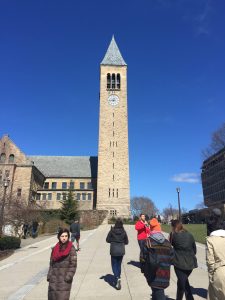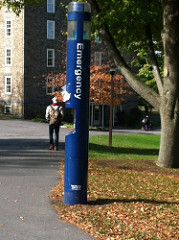Did you know that your child can start getting scholarships for college before they even get to high school?
It’s true. There are more middle school scholarships available to students than ever before!
I didn’t know this until recently either—I was working with an 11th grade student to find outside scholarships for college, and we were doing some independent research.
We had a meeting set up to review our findings together, which revealed some very surprising results.
Can middle schoolers get college scholarships?
I was amazed at the college scholarships for middle school students available long before they even started applying to college.
I realized that (as someone who is fully immersed in the college application and admission processes) if even I didn’t know there were so many excellent scholarships available for middle school students, how could the students and their families know?
I began sharing several of the scholarship opportunities I found with families who had younger children.
While we’re on the topic, you won’t want to miss this post, with tips for preparing your ninth-grader for college.
What I’ve found is while most people wanted to know about these scholarships as soon as their child was eligible to apply, only a small percentage actually followed through with the applications.
Can you guess what happened when other middle schoolers did take advantage of these scholarship opportunities?
Their road to college was a much smoother ride!
Of course, obtaining scholarships isn’t the only important part of the journey to getting into college.
Although it’s still a few years away, here are some tips for supporting your middle school-aged child during the college admissions process.
Scholarship opportunities for middle school students
If you want to start garnering middle school college scholarships early, check out these opportunities for middle schoolers:
- Doodle 4 Google—Contestants can apply for this scholarship as early as kindergarten through high school.
- Gloria Barron Prize for Young Heroes—This scholarship goes to young people aged 8 – 18 who have made a positive difference on people and the environment.
- Kohl’s Cares—Students are recognized for their volunteer service from 6 years and up to high school graduation with this scholarship that awards up to $10,000.
- MathMovesU—These scholarships go to 6th, 7th, and 8th graders and can be used for a summer camp or college.
- Scholastic Arts and Writing Awards—This scholarship is the nation’s longest-running and most prestigious recognition program for creative teens in grades 7 – 12. Students can submit art or writing across 28 categories.
- The Angela Award—The Angela Award is a scholarship awarded by the National Science Teachers Association to a girl in grade 5 – 8, who is involved in or connected to science.
This is just a short list of opportunities to help you get started.
I encourage you to do a very specific search on Google to find additional scholarships for your middle schooler. It takes time and diligence to find scholarships and apply for them, so don’t give up!
These efforts can pay off in more ways than one.
What other scholarships would you add to this list?
Need a little more guidance with finding scholarships, college applications, and admissions?
For one-on-one support and other resources to help you or your child get into (or pay) for college, click here.
If you’d like to learn more about preparing for college and the college application process, you’ll want to have a look at these articles too:
7 Ways to Support Your Child During the College Application Process
Get In and Get Money: 5 Tips for College-Bound Juniors
Where’s the Money for College? Case Studies of How Students Earned Big Scholarships
This article was originally published on June 29, 2015, and has been updated.







